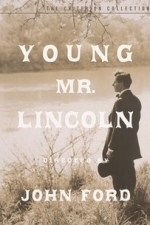
Pathways to Reform: Credits and Conflict at the City University of New York
Book
A personal account of the implementation of a controversial credit transfer program at the nation's...

Practical Research: Planning and Design
Paul D. Leedy and Jeanne Ellis Ormrod
Book
For introductory courses Research Methods in any area of study-from Anthropology to Zoology...

Willkommen! 2 German Intermediate course: Activity Book
Paul Coggle and Heiner Schenke
Book
Willkommen! 2 Intermediate course is a brand new multi-format German adult learning programme for...

Austere Gardens: Thoughts on Landscape, Restraint, & Attending
Book
Austere Gardens suggests that being open to other ways of observing and sensing can yield new...

The Plant-Based Journey: A Step-by-Step Guide for Transitioning to a Healthy Lifestyle and Achieving Your Ideal Weight
Howard Jacobson, Lani Muelrath, T. Colin Campbell and Neal Barnard
Book
It's been proven that a plant-based diet is good for your weight, health, budget, and the...
Feminist Spaces: Gender and Geography in a Global Context
Ann M. Oberhauser, Jennifer L. Fluri, Risa Whitson and Sharlene Mollett
Book
Feminist Spaces introduces students and academic researchers to major themes and empirical studies...
Tyondai Braxton recommended The Complete Works by Edgard Varese in Music (curated)
Allison Anders recommended Young Mr. Lincoln (1939) in Movies (curated)
ClareR (6062 KP) rated Gun Island in Books
May 21, 2021
Deen Datta certainly gets around on his journey. From New York where he lives, to the Sunderbans in India, then onto a California on fire and a more flooded than usual Venice. This could have been a book that preached about the perils of climate change, but it didn’t. It did lay the stark reality out for the reader, but this was just as much a part of the story as the relationships Deen has with the people he meets, and his friends. There is a real feeling that Deen doesn’t have a firm identity: he’s detached from his Bengali roots, and he doesn’t fit in to New York either. But I think he does feel a sense of belonging by the end of the book, with the help of his friends. Cinta, a Venetian, is an old friend, and someone who always seems to push him into doing what’s good for him. Then there are his Indian friends, Piya and Tipu who help him to learn new things about himself and the world he lives in.
I loved this book. It ticked a lot of boxes on my favourite themes list: the environment, India, history, folklore, the search for identity. It’s such a thought provoking, magical novel.
Gareth von Kallenbach (980 KP) rated It Comes At Night (2017) in Movies
Jul 11, 2019
The film features Paul (Joel Edgerton) a father and husband who is seeking to keep his family safe in the wilderness from unknown threats. He and his family are uncertain of what has taken place. They are not sure if the population has become victims to terrorism, disease, or some sort of supernatural occurrence. Paranoia builds as a stranger arrives on their land. What are his intentions? Can they trust each other long enough to survive? Will they outlast whatever has consumed countless others?
The film is haunting and will have its audience trying to guess and discover what exactly is taking place. The film is reminiscent of The Village, The Happening, and other movies that rely on ambiguity. For some films, the mystery may be the downfall as it leads nowhere. With It Comes At Night, the filmmakers allow for reality to seep into the lives that viewers are witnessing on the screen. For this film, the ambiguity allows for the audience to question how they would behave or adapt in a seemingly post-apocalyptic environment. We like to think that we know, but we can never be sure. This comes through with the actions of each of the characters. They are alone and afraid.
The film is deep in its approach to what the world would look like should calamity approach. People would become distrustful, fight, turn on each other, kill without thinking, and eventually sink into the realization that they don’t know what to do. It Comes at Night allows for the reality of horror to be exposed. It is not knowing how to face a certain danger, it is about having to come to terms with the unknown.




